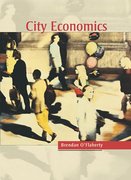4. Legal pot in Quonset, Rhode Island? Ever since Quonset seceded from the United States and joined...
Question:
4. Legal pot in Quonset, Rhode Island? Ever since Quonset seceded from the United States and joined the United Nations, this issue has been intensely debated. A group of businesspeople has proposed that marijuana consumption be legalized in Quonset (exports would be prohibited). “It will be good for business and good for Quonset,” they say. “Tourists will come from all over the world; they’ll stay in our hotels and eat in our restaurants; they’ll buy snacks and souvenirs in our shops; they’ll use water and electricity; and they’ll pay all sorts of taxes.”
a. Consider the following three markets: marijuana (which would be produced at constant marginal cost); Quonset souvenirs (produced at constant marginal cost and sold in a competitive market); and electricity
(produced by a regulated monopoly and sold at average cost, which is greater than marginal cost). In each market, identify the winners (if any) and losers (if any) from legalization. In which markets is the gain of the winners more than sufficient to compensate the losers for their losses?
b. Assume the following values. Before legalization, the price and marginal cost of marijuana in Quonset was 10 Quonset-dollars. After legalization, it will be 5 Quonset-dollars. The annual demand for marijuana in Quonset is m = 1,000 − 50pm − 200pL, where m is the quantity of marijuana demanded in grams, pm is the price of marijuana per gram in Quonset dollars, and pL is the price of Quonset land per hectare in Quonset dollars. The quantity of land in Quonset is 5,000 hectares. The annual demand for land in Quonset is L = 10,000 − 200pm − 3,000pL Who gains from legalization? How much?
c. The U.S. government offers to pay Quonset 2,500 Quonset-dollars per year if it doesn’t legalize marijuana. Should the government of Quonset accept this offer? Why or why not? If it accepts the offer, what should it do with the money?
Step by Step Answer:







